- Home
- Sebastian Faulks
Birdsong Page 15
Birdsong Read online
Page 15
“No. Brennan and Douglas would be all right. They know what they’re doing.”
“Don’t you want to talk to this man?” said Weir.
“I would if I could remember who he was.” He turned to Jack. “There’ll be some tea in a minute if you don’t want whisky. I’ll tell Riley to make an extra cup.”
As Jack’s eyes grew accustomed to the smoky dugout he saw that parts of the walls were covered with fabric. It looked like expensive foreign silk or cotton. On top of a small locker were more wooden carvings of human figures. There were no photographs on the bookshelves in the corner, though there were some amateurish sketches of heads and bodies. He became aware that the lieutenant had been following his gaze.
“Do you draw?” he said.
“A bit,” said Jack. “I don’t get enough time now. Or the quiet.”
A tray with three mugs of tea was brought in by Riley, a small grey-haired man in neat batman’s uniform. He reached up to a bag suspended from the ceiling, out of range of rats, and produced some sugar.
Jack watched the lieutenant go over to the shelves and take down a sketch. “The human anatomy is extraordinarily simple,” he said. “The construction of the legs for instance: two long bones with a simple joint for flexing, and the proportions always the same. But when you draw them it’s difficult to suggest the shape. Everyone can see this muscle on the thigh, the quadriceps. I never knew there was another one here, inside, the sartorius. But if you emphasize it too much the figure looks muscle-bound.”
Jack watched the lieutenant’s finger trace the lines of the leg on the drawing as he spoke. He was not sure whether the man was teasing him, extending his agony, or whether he really wanted to talk about drawing.
“Of course,” the lieutenant said with a sigh, “the war has provided all of us with daily lessons in anatomy. I could write a paper on the major organs of the British private soldier. Liver in section. Bowel, extent of, when eviscerated. The powdery bone of the average English subaltern.”
Jack coughed. “Excuse me, sir. Can I ask about the charge?”
“The charge?”
“For God’s sake, Wraysford,” said Weir. “You told this man to report to you because he was asleep. He wants to know if you are going to have him court-martialled. He wants to know if he’s going to have an art lesson or whether he’s going to be shot.”
“There’s no charge. You are not under my command.”
Jack felt a hot stinging in his eyes.
“I’m sure your own company commander will punish you if he wants to.”
Weir shook his head. “No further action.”
“Thank you, sir. Thank you.”
Jack looked at the two men with love and gratitude. They understood the difficulties of a man who had been stretched too far. He felt sure that their mercy sprang from compassion for him. He took out Margaret’s letter. In his enthusiasm for living he wanted to share the burden of his son’s illness.
“You see here, sir. I had this letter from my wife. Our boy’s been taken poorly. I was worried for him. I’d not slept when I came up from the tunnel, I was so worried about him.”
He handed the letter to Weir, who nodded. “See this, Wraysford?” he said, pushing it across the table.
“Yes,” said Stephen. “I see it. Diphtheria, it says. That’s serious.”
“Will I be allowed leave to go and see him?”
Stephen raised an eyebrow toward Weir. “I doubt it. We’re undermanned as it is,” said Weir.
Jack said, “Have you got children, sir?”
Weir shook his head. “Not married.”
“You, sir?”
“No,” said Stephen.
Jack nodded a few times to himself. “I suppose it’s funny when I’m out here with men getting killed all round me and it’s him that’s in danger.”
Stephen said, “Every one of the men we’ve killed is someone’s son. Do you think of that when you see them dead? Do you wonder what their mothers thought when they first held them to their breast—that they would end like this?”
“No, sir. I hadn’t thought of it like that.”
The three men drank their tea. From outside came the whining of shells. They could feel the reverberation of the explosion in the dugout. Fragments of dried earth fell from the ceiling.
Stephen said, “Two of my men were in a shellhole listening for eight hours last night in no-man’s-land. What do you think they were thinking about all that time? It’s not as if they’re allowed to talk.” He was looking at Jack.
“I don’t know, sir. Perhaps it’s like when we’re in the tunnel. You stop thinking at all after a bit. It’s as though you’ve stopped living. Your mind goes dead.”
“I’d like to go down your tunnel,” said Stephen.
“No you wouldn’t,” said Weir. “Even the miners don’t like it.”
“I’d like to see what it feels like. Some of my men think you don’t work fast enough down there. They think you don’t hear the noise of the enemy. They’re terrified of being blown up from underneath.”
Weir laughed. “We know that all right.”
Jack shifted in his chair. There was something strange about the two officers. He suspected they were drunk. He had always thought of Weir as dependable. Like all the tunnelling company commanders, he was a regular engineer who had been transferred. He was careful and reliable underground, even though he had had no experience of it before the war. But his eyes looked wild and red with whisky. The brownish stubble on his cheeks and chin was surely the result of more than one morning’s missed shave. The lieutenant, Jack thought, looked more sober, but in some ways even stranger. You could not be sure whether he was serious. He seemed forgetful and distant, but also enthusiastic about going underground. It was as though he was not all there, Jack thought. The affection and gratitude he had felt at first began to evaporate. He didn’t want to share any more of his personal feelings with them. He wanted to be back with Tyson and Shaw, or even Wheeler and Jones with their irritating chatter. At least with them he would know where he was.
“Any idea when we’ll get some rest, sir?” he asked Weir.
“Tomorrow, I should think. They couldn’t keep us here longer than that. What about your men, Wraysford?”
Stephen sighed. “God knows. I hear rumours all the time from battalion headquarters. We will have to attack sooner or later. Not here, though.”
“Are we going to have to lose a few lives just to placate the French?” Weir laughed.
“Yes. Oh, yes. They want to feel they’re not alone in this. But I believe they will reap the whirlwind.”
Riley appeared from the back of the dugout. “It’s nearly six, sir. Stand-to in ten minutes.”
“You’d better go, Firebrace,” said Weir.
“I’ll see you in that tunnel,” said Stephen.
“Thank you, sir.”
Jack climbed back out of the dugout. It was almost light outside. The low sky of Flanders met the earth at a short horizon, only a few miles behind the German lines. He breathed in deeply on the morning air. His life had been spared; the last trace of elation came to him as he looked toward the back of the trench and saw the plumes from cigarettes and steam from the tea that cold hands were now clasping. He thought of the stench of his clothes, the lice along the seams, the men he was frightened to befriend in case their bodies came apart the next day in front of his eyes. It was the hour of Tyson’s ablutions, when he would empty his bowels into a paintpot and throw the contents over the top.
From the officers’ dugout behind him came the sound of piano music, a rising melody under the scratch of a thick gramophone needle.
When they were finally relieved, the miners were allowed to go to a village further back than their usual billet for a rest. The men were so tired they found it hard to march. Three miles behind the front line they were on a prepared road with ditches on either side. The order “easy” had been given, and some men smoked as they walked. Jack Firebrace
concentrated on keeping a straight line under the weight of his pack with its extra digging tools. There was a village dimly visible at the end of an avenue, but he found that if he focused on it he lost the ability to coordinate his feet. He felt as though he were walking across a ravine and the road was a hundred feet below. Twice he jerked awake, realizing he had been walking in his sleep. A few ranks behind him, Wheeler had to be pulled from the ditch. Jack closed his eyes for a moment against the brightness of the daylight, but quickly reopened them as he felt a sensation of nausea at his loss of balance.
There were things he had thought he might never see again, signs that life had persisted outside the narrow inferno of his existence. A curate rode toward them on a bicycle and raised his flat hat as he passed the column of men. Beside the road was grass that was still green, that had not been uprooted. There was blossom in the trees.
When they stopped in the village square, Sergeant Adams gave them leave to sit down while officers went in search of billets.
Jack leant against the stone surround of the village water pump. Tyson was staring at him with blank eyes, unable to register the change in his surroundings. There were columns of smoke coming from the houses in the small street behind the square. They could see a food shop and a butcher’s, in the doorway of which two small boys were playing.
Then Jack heard the sound of a woman’s voice. It spoke an unfamiliar language with a harsh accent that was strange to his ears, but there was no mistaking its femininity. It belonged to a stout woman of about thirty who was talking to a fair-haired girl. The miners listened as the high voices came to them on the thin air of the morning like consoling memories of a lost life.
Two other members of Jack’s platoon, O’Lone and Fielding, had fallen asleep where they lay on the cobbles. Jack allowed the feeling of rest to come up on him slowly, trying to adjust himself to the lack of fear.
He turned to look at Shaw, who sat beside him. His unshaven face was black with dirt and his eyes showed white and fixed below the grime. He had not spoken since they had begun the march and his body seemed to have frozen.
In the corner of the square a white dog began barking. It ran around in front of the butcher’s shop until the butcher himself came out and clapped his hands fiercely at it. Then it went up and sniffed at the feet of the men who were nearest to it. It wagged its tail in excitement at the presence of so many people. It had a sharp, pointed face and a feathery tail that arched over its back. It licked Jack’s boot, then rested its head on Shaw’s motionless knee. Shaw looked down at the bright eyes that searched his face for any sign that he might feed it. He began to stroke the dog’s head. Jack watched Shaw’s big miner’s hands run down the animal’s soft back. Gently, Shaw laid his head against the dog’s flank and closed his eyes.
Captain Weir directed them to a barn on the outskirts of the village. The farmer had grown used to billeting troops and drove a hard bargain. Many men dropped their packs and slept on the first piece of straw they could find. Tyson found a clean corner, to which he invited Shaw and Firebrace. They disliked each other’s habits, but they were familiar with them and feared worse.
———
In the afternoon, Jack woke from his sleep and went out into the farmyard. The company cooker, a kitchen range on wheels, was being stoked up. A horse-drawn cart had come to deliver disinfectant and lousing powder under the critical eye of the quartermaster.
Jack walked down the lane toward the village. He spoke no word of French and viewed all buildings, fields, and churches as profoundly alien. The comfort of not being under fire was diluted by a growing homesickness. He had never been abroad before the war, and only two or three times had he left the reassuring noise and pattern of the London streets in which he had been brought up. He missed the clank and rattle of trams, the long terraces of north London, and the names that took him toward his home territory, Turnpike Lane, Manor House, Seven Sisters.
There was also an infantry battalion at rest: the village was taken over by the racket and movement of an army regrouping, resting, and trying to restore itself. Jack went among the snorting horses, the shouting NCOs, and the little groups of smoking, laughing soldiers like a boy in a dream. What happened a few miles away was kept secret. None of these men would admit that what they saw and what they did were beyond the boundaries of human behaviour. You would not believe, Jack thought, that the fellow with his cap pushed back, joking with his friend at the window of the butcher’s shop, had seen his other mate dying in a shellhole, gas frothing in his lungs. No one told; and Jack too joined the unspoken conspiracy that all was well, that no natural order had been violated. He blamed the NCOs, who blamed the officers; they swore at the staff officers, who blamed the generals.
The company cooker disgorged hot stew, coffee, and a second helping, for the keenest, of fat and water mixed to an imitation gravy. With a piece of fresh bread in his other hand, Jack spooned it all down hungrily. Wheeler complained that the food was disgusting, nothing like the teas his wife cooked for him, or the fish and chips he sometimes ate for supper on his way back from the pub. O’Lone had memories of meat pies and new potatoes, followed by sponge pudding. Tyson and Shaw were not given to complaining, though neither had much relish for the food. Jack finished what Tyson didn’t want. He was too ashamed to admit that the army food, though irregular and sometimes contaminated when it arrived at the front, was generally better than what they could afford at home.
Shaw had revived. His strong back helped shift fresh bales of straw in the barn; his bass voice once more joined in the repetitive sentimental songs that broke out after feeding. Jack was glad to see it; he depended on the resilience of certain men to nerve himself to his unnatural life, and Arthur Shaw with his handsome, heavy head and calm manner was his greatest inspiration.
In good humour, braving the barely understood jeers of the washerwomen who stood by to take their clothes, the men queued naked for the baths that had been set up in a long barn. Jack stood behind Shaw, admiring his huge back, with the muscles slabbed and spread out across his shoulder blades, so that his waist, though in fact substantial enough, looked like a nipped-in funnel by comparison, above the dimple of the coccyx and the fatty swell of his hair-covered buttocks. Inside the barn the men roared out in song or in shouted abuse, throwing cakes of soap and splashing water from the baths of variable temperature that had been improvised from wine barrels and animal feeding troughs. By the doorway stood Sergeant Adams with a cold hose over the end of which he placed his finger to intensify the pressure and drive the men into the air where they would recover clothes which, though clean, still contained the immovable lice.
They collected their pay in five-franc notes in the evening and looked for ways of spending it. Since he had been cast as the joker in their section, Jack Firebrace was also regarded as the man who should be in charge of entertainments. Newly shaved, with combed hair and cap badges polished, Tyson, Shaw, Evans, and O’Lone presented themselves to him. “I want you back by nine o’clock, and sober,” said Sergeant Adams as they swung out through the gates of the farm. “Will you settle for half-past?” called out Evans.
“Half-past and half-pissed,” said Jack. “That’ll do me.” The men laughed all the way to the village.
Queues were drifting and forming outside a shop where an improvised bar, which they called an estaminet, had been set up. Using his gifts as master of revels, Jack lighted on a cottage with a bright kitchen and a small queue. The men followed him and waited outside until there was space for them to crowd round a table where an elderly woman produced plates full of fried potatoes from a pan of seething oil. There were litre bottles of unlabelled white wine passed around among the diners. The men disliked the dry taste of it and one of the younger women was prevailed on to fetch sugar, which they stirred into their glasses. Still pantomiming their disgust, they managed to swallow it in quantity. Jack tried a bottle of beer. It was not like the pints that memory served him in the Victorian pubs at home, made w
ith Kentish hops and London water.
Sleep took them all by midnight, when Tyson extinguished his last cigarette in the straw. In the loud noise of snoring they forgot what was unforgivable. Jack noticed how men like Wheeler and Jones treated each day as though it were a shift at work and talked to one another in the evening in the nagging, joking way they would have done at home. Perhaps, in some way he did not understand, that was what the two officers had been doing; perhaps all that talk about life-drawing was just a way of pretending everything was normal. As he began to drift toward sleep, he concentrated hard on the thought of his home; he tried to imagine the sound of Margaret’s voice and what she would say to him. The health of his son became more important than the lives of the company. No one had even raised a glass to Turner in the estaminet; no one remembered him or the three others who had been taken with him.
The night before they were to return to the front there was singing. The men knew no shame. Wheeler and Jones sang a mawkish duet about a girl worth a million wishes. O’Lone recited a poem about a little house with roses at the gate and a bird in the tree that went tra-la-la.
Weir, who had been persuaded to play the piano, blanched with embarrassment as Arthur Shaw and the rest of his section, men he knew had been responsible personally for the taking of at least a hundred lives, longed over several verses for the touch of their mama’s kiss. Weir promised himself he would never again socialize with other ranks.
Jack Firebrace told a series of jokes in the style of a music hall comic. The men joined in with some of the punchlines, but kept laughing at his performance. Jack’s solemn face glistened with the effort of his comedy, and the men’s determined response, whistling and slapping each other in mirth, was a token of their determination, and their fear.
Jack looked out over the hall that had been borrowed for the occasion. There were waves of red faces, smiling and shiny in the lamplight, their mouths open as the men roared and sang. Each one looked to Jack, from his vantage point on an upturned box at the end of the hall, indistinguishable from the next. They were men who could each have had a history but, in the shadow of what awaited them, were interchangeable. He did not wish to love one more than the next.

 Devil May Care
Devil May Care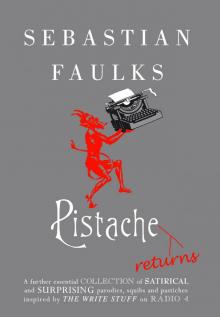 Pistache Returns
Pistache Returns The Girl at the Lion D'Or
The Girl at the Lion D'Or Pistache
Pistache Jeeves and the Wedding Bells
Jeeves and the Wedding Bells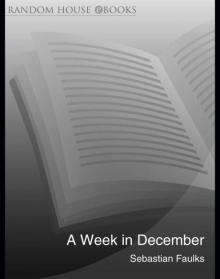 A Week in December
A Week in December The Vintage Book of War Stories
The Vintage Book of War Stories Engleby
Engleby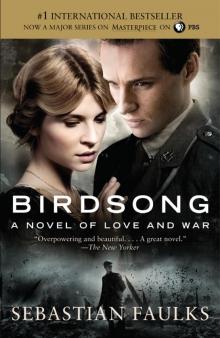 Birdsong
Birdsong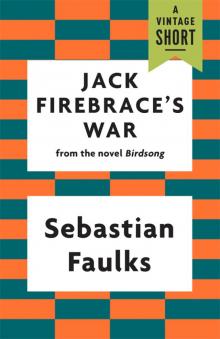 Jack Firebrace's War
Jack Firebrace's War Where My Heart Used to Beat
Where My Heart Used to Beat A Possible Life
A Possible Life The Fatal Englishman: Three Short Lives
The Fatal Englishman: Three Short Lives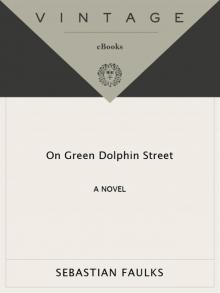 On Green Dolphin Street
On Green Dolphin Street Charlotte Gray
Charlotte Gray A Broken World: Letters, Diaries and Memories of the Great War
A Broken World: Letters, Diaries and Memories of the Great War Human Traces
Human Traces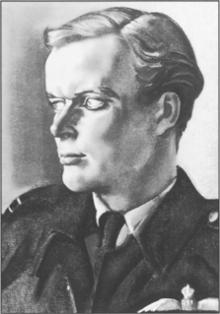 The Fatal Englishman
The Fatal Englishman A Broken World
A Broken World Paris Echo
Paris Echo War Stories
War Stories Girl At the Lion d'Or
Girl At the Lion d'Or